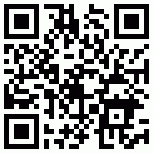Despite ‘safe zone’ designation, 5 Israel massacres have killed 217 Palestinians in Al-Mawasi since May
Despite Israel declaring it a “safe area”, effectively promising Palestinians shelter from attacks, the Al-Mawasi area, located along the southern Palestinian coastline of the Mediterranean Sea in south-western Gaza, has suffered five Israeli massacres since May.
This sandy region, devoid of basic living necessities, has become home to about 1.7 million displaced Palestinians seeking shelter from months of Israeli attacks.
Forced to relocate under heavy fire, the majority arrived in Al-Mawasi following the Israeli military’s ground operation in Rafah, starting on 6 May.
The area, stretching 12 kilometres (7.5 miles) from Deir Al-Balah in the north to Rafah in the south, and just 1 km (0.62 mi) wide, is overcrowded with makeshift tents.
Despite Israeli claims of the area being “safe”, the military has continued to target it with missiles and gunfire, resulting in repeated civilian casualties.
Since beginning its Gaza offensive last October, Israel has followed a pattern of declaring certain areas to be “safe zones”, pushing Palestinians to relocate there, yet still attacking them in the zones or even en route to promised safety.
Below is a review of the five massacres that Al-Mawasi has suffered, according to Anadolu’s documentation:
Mawasi, Khan Yunis
- 10 September massacre: The Israeli army bombed refugee tents in Al-Mawasi, west of Khan Yunis, killing 40 Palestinians and injuring 60 others.
Many remain missing, buried under the sand, according to an initial report by Ismail Al-Thawabta, the head of Gaza’s Government Media Office.
The Israeli army claimed that its air force targeted Hamas operatives in a disguised command and control centre in the Khan Yunis humanitarian zone.
Human rights groups and international organisations condemned the attack.
Survivors said the bombing left deep craters, effectively turning them into a mass grave for those trapped beneath.
- 16 July massacre: A drone strike targeted a civilian vehicle on Al-Attar Street in Al-Mawasi, Khan Yunis, killing 17 Palestinians and injuring over 26 others.
13 July massacre: The Israeli military launched multiple airstrikes on refugee camps in the Al-Nas area of Al-Mawasi, west of Khan Yunis, killing 90 people and injuring 300 more, according to the Health Ministry, which said half of the victims were women and children.
The Gaza Government Media Office labelled it a “large massacre” and warned there are no hospitals capable of handling the large influx of casualties due to the destruction of Gaza’s healthcare system.
The Israeli army alleged it targeted two prominent Hamas members in the area, but did not name them.
Hamas denied this, and Israeli Prime Minister, Benjamin Netanyahu, later stated that the operation was aimed at Hamas’ military leader, Mohammed Deif, and his deputy, Rafa Salama, which Hamas also rebuffed as “false” claims.
Mawasi, Rafah
- 22 June massacre: Israeli artillery shelled refugee tents in Al-Mawasi, Rafah, killing 25 Palestinians, according to medical sources cited by Anadolu.
The shelling also set tents on fire, forcing residents to flee, once again, this time heading north to Al-Mawasi in Khan Yunis.
The International Committee of the Red Cross (ICRC) reported that heavy shells landed near its office and staff residence in Rafah, which is surrounded by displaced civilians living in tents.
Many of the Red Cross’ Palestinian staff and their families were among those affected.
The Red Cross added that the shelling caused a large influx of casualties to their field hospital in the area.
- 26 May massacre: The Israeli military bombed a refugee camp in Al-Mawasi, Rafah, with several warplane missiles, killing 45 Palestinians, including 23 women and elderly people, and injuring 249 others, according to the Palestinian Health Ministry.
The Israeli army initially denied responsibility, with spokesperson, Daniel Hagari, stating that “contrary to reports, the army did not attack the humanitarian zone in Al-Mawasi.” Hamas, however, condemned the attack, accusing Israel of committing a massacre.
Since last 7 October, the Israeli onslaught has killed more than 41,000 people, mostly women and children, and injured nearly 95,000, according to local health authorities.
An ongoing blockade of the enclave has led to severe shortages of food, clean water and medicine, leaving much of the region in ruins.
 QR code
QR code